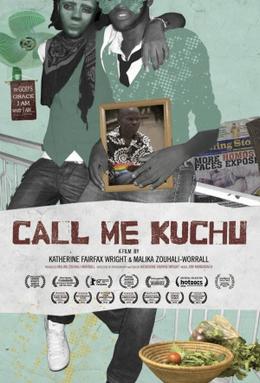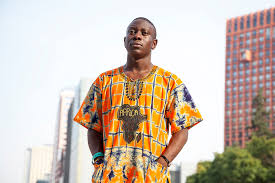Related Research Articles

Uganda, officially the Republic of Uganda, is a landlocked country in East Africa. The country is bordered to the east by Kenya, to the north by South Sudan, to the west by the Democratic Republic of the Congo, to the south-west by Rwanda, and to the south by Tanzania. The southern part of the country includes a substantial portion of Lake Victoria, shared with Kenya and Tanzania. Uganda is in the African Great Lakes region, lies within the Nile basin, and has a varied but generally modified equatorial climate. As of 2023, it has a population of around 49.6 million, of which 8.5 million live in the capital and largest city of Kampala.
Anti-LGBT rhetoric comprises themes, catchphrases, and slogans that have been used in order to demean lesbian, gay, bisexual, and transgender (LGBT) people. They range from the demeaning and the pejorative to expressions of hostility towards homosexuality which are based on religious, medical, or moral grounds. It is a form of hate speech, which is illegal in countries such as the Netherlands, Norway, and Sweden.
Red Pepper is a daily tabloid newspaper in Uganda that began publication on 19 June 2001. Mirroring tabloid styles in other countries, the paper is known for its mix of sensationalism, scandal, and frequent nudity. The paper has received the ire of the Ugandan government for publishing conspiracy theories relating to the death of Sudan's Vice President John Garang in a helicopter crash and revealing that former foreign minister James Wapakhabulo died of AIDS.

Lesbian, gay, bisexual, and transgender (LGBT) persons in Uganda face severe legal challenges, active discrimination, state persecution and stigmatisation not experienced by non-LGBT residents. Both male and female homosexual activity is illegal in Uganda. Originally criminalised by British colonial laws introduced when Uganda became a British protectorate, these were retained after the country gained its independence.

Scott Douglas Lively is an American activist, author, and attorney, who is the president of Abiding Truth Ministries, an anti-LGBT group based in Temecula, California. He was also a cofounder of Latvia-based group Watchmen on the Walls, state director of the California branch of the American Family Association, and a spokesman for the Oregon Citizens Alliance. He unsuccessfully attempted to be elected as the governor of Massachusetts in both 2014 and 2018.

The Anti-Homosexuality Act, 2014 was an act passed by the Parliament of Uganda on 20 December 2013, which prohibited sexual relations between persons of the same sex. The act was previously called the "Kill the Gays bill" in the western mainstream media due to death penalty clauses proposed in the original version, but the penalty was later amended to life imprisonment. The bill was signed into law by the President of Uganda Yoweri Museveni on 24 February 2014. On 1 August 2014, however, the Constitutional Court of Uganda ruled the act invalid on procedural grounds.

Christopher Senyonjo is a clergyman and campaigner for LGBT rights in Uganda. He was elevated to bishop in the Church of Uganda in 1974 and retired in 1998. In 2001, he was barred from performing services. Whilst it is widely claimed that this is because of his stance on gay rights, the church claims that it was because of his participation in the consecration of a man to be a bishop of a church with which the Church of Uganda is not in communion. He has since worked with the Charismatic Church of Uganda and the progressive Episcopal Church of the United States, and founded Integrity Uganda and the Saint Paul's Reconciliation and Equality Centre in Kampala. In 2006 the Church of Uganda declared him "no longer a bishop" and revoked all remaining privileges for his involvement with the Charismatic denomination. For his stance Senyonjo has received several honours including the Clinton Global Citizen Award, and has been invited to participate in documentaries and international speaking tours.

Sexual Minorities Uganda (SMUG) is an umbrella non-governmental organization based in Kampala, Uganda. It has been described as the country's leading gay rights advocacy group.

David Kato Kisule was a Ugandan teacher and LGBT rights activist, considered a father of Uganda's gay rights movement and described as "Uganda's first openly gay man". He served as advocacy officer for Sexual Minorities Uganda (SMUG).

Kasha Jacqueline Nabagesera is a Ugandan LGBT rights activist and the founder and executive director of the LGBT rights organization Freedom & Roam Uganda (FARUG). She received the Martin Ennals Award for Human Rights Defenders in 2011 and the Right Livelihood Award in 2015.

Frank Mugisha is a Ugandan LGBT advocate and Executive Director of Sexual Minorities Uganda (SMUG), who has won the Robert F. Kennedy Human Rights Award and Thorolf Rafto Memorial Prize 2011 for his activism. Mugisha is one of the most prominent advocates for LGBT rights in Uganda.
Freedom and Roam Uganda (FARUG) is a human rights organization that addresses discrimination against lesbian, bisexual, transgender and intersex (LBTIQ) people in Uganda.

Call Me Kuchu is a 2012 American documentary film directed by Malika Zouhali-Worrall and Katherine Fairfax Wright. The film explores the struggles of the LGBT community in Uganda, focusing in part on the 2011 murder of LGBT activist David Kato.
Kushaba Moses Mworeko is a Ugandan LGBT rights activist, combat medic and blogger. Mworeko, who is gay, was involved in a U.S. asylum case following an interview he gave to an LGBT newspaper in the U.S. which published the interview in 2010 along with his picture and full identity—effectively outing him. Following that publication, a Ugandan tabloid saw the interview and reprinted portions of it along with his picture with the headline: "[This] Gay Monster Raped Boys in School but Failed to Bonk Wife" – effectively distorting the content of that interview and putting his life in danger in a country like Uganda where homosexuality is illegal and where at the time Ugandan Member of Parliament (MP) David Bahati has introduced his "Kill the Gays Bill". According to a 28 September 2010 issue published on Box Turtle Bulletin and authored by writer Jim Burroway, Burroway accused the Ugandan tabloid of "gay-baiting and gay-bashing journalism" and for "grossly distorting that same interview in its write-up."
Pepe Julian Onziema is a Ugandan LGBT rights and human rights defender and trans man. He began his human rights work in 2003. He has since participated in organizing LGBT pride celebrations in Uganda.
John "Longjones" Abdallah Wambere is a Ugandan gay rights activist and co-founder of Spectrum Uganda Initiatives, a Kampala-based LGBTI rights advocacy organization with a focus on health education. Because of the threat of violence and persecution he faces in Uganda, Wambere was approved for asylum in the United States by the U.S. Citizen and Immigration Services on September 11, 2014. He currently resides in Cambridge, Massachusetts.

Richard Lusimbo is a Ugandan LGBT activist, documentary filmmaker, and public speaker who gained international attention when he was outed in a Ugandan tabloid newspaper for being gay.

Capital punishment as a criminal punishment for homosexuality has been implemented by a number of countries in their history. It currently remains a legal punishment in several countries and regions, most of which have sharia–based criminal laws except for Uganda.

Clare Byarugaba is a Ugandan LGBT activist in Kampala who has spoken out against the government's anti-LGBT rhetoric. She is the co-coordinator of the Civil Society Coalition on Human Rights and Constitutional Law. In 2013, Byarugaba was set to start a Kampala chapter of PFLAG to support relatives of LGBT persons in a country whose president banned homosexuality. After this ban, she was outed by a national tabloid that put her face on its cover, threatening her life. In 2014, Byarugaba joined the Women in the World summit to share her personal story through the organization's mission to give women voice and agency. Byarugaba was the 2014 Oak Fellow with the Oak Institute for the Study of International Human Rights at Colby College.
Giles Muhame is a Ugandan journalist, news editor who made international news in 2010 and 2011 for his efforts to out homosexuals. He is the co-founder of Chimpreports; a daily tabloid newspaper published in Kampala, Uganda.
References
- ↑ CanuckJacq (5 January 2011). "Ugandan editor willing to 'go to jail' to out gays". gaelick. Archived from the original on 13 January 2011. Retrieved 6 January 2011.
- 1 2 3 Xan Rice (June 2011). "Death by Tabloid". The Atlantic. Retrieved 13 May 2011.
- 1 2 3 "Gays in Uganda say they're living in fear", Godfrey Olukya & Jason Straziuso, NBC News , Associated Press
- 1 2 "Not In Our Name: Ugandan Newspaper's Horrific Action", Rolling Stone , 21 October 2010
- ↑ "Ugandan paper calls for gay people to be hanged", Xan Rice, The Guardian , 21 October 2010
- ↑ "Ugandan gay rights activist: 'I have to watch my back more than ever'", Amnesty International, 5 November 2010
- ↑ "Uganda: Stop homophobic campaign launched by Rolling Stone tabloid", 14 October 2010, No Peace Without Justice
- ↑ "Uganda Newspaper Published Names/Photos of LGBT Activists and HRDs – Cover Says 'Hang Them'". International Lesbian, Gay, Bisexual, Trans and Intersex Association. Archived from the original on 1 February 2011.
- ↑ "Outcry as Ugandan paper names 'top homosexuals'", Simon Akam, The Independent , 22 October 2010
- ↑ "Uganda's Rolling Stone paper told to stop outing gays". BBC News. 1 November 2010. Retrieved 11 May 2011.
- 1 2 "Court Affirms Rights of Ugandan Gays", Human Rights First, January, 4, 2011
- 1 2 "Uganda court orders anti-gay paper to shut". Reuters. 2 November 2010. Archived from the original on 5 November 2010. Retrieved 29 January 2011.
- ↑ "Judge orders Ugandan paper to stop publishing 'gay lists'", CNN International , 2 November 2010
- ↑ Giles Muhame (3 January 2011). "UGANDA TALKS EXCLUSIVE: Rolling Stone newspaper to appeal High Court ruling". The Independent. Uganda. Retrieved 13 May 2011.
- ↑ "Jann Wenner: 'Who Would Have Thought We'd Have to Own the Rolling Stone Copyright in Uganda?'", 20 October 2010, New York Magazine
- ↑ "Ugandan Judge Says Rolling Stone Paper Invaded Privacy in Outing Alleged Gays IPI to Rolling Stone: You Make Our Job Harder", International Press Institute
- ↑ Xan Rice (27 January 2011). "Ugandan gay rights activist murdered weeks after court victory". The Guardian.
- ↑ Jeffrey Gettleman (27 January 2011). "Ugandan Who Spoke Up for Gays Is Beaten to Death" . The New York Times. Retrieved 29 January 2011.
- ↑ Xan Rice (29 January 2011). "Murdered Ugandan gay activist talked of threats". The Sydney Morning Herald. Retrieved 29 January 2011.
- ↑ Xan Rice (27 January 2011). "Ugandan 'hang them' paper has no regrets after David Kato death". The Guardian. Retrieved 11 May 2011.
- ↑ Risdel Kasasira (28 January 2011). "World condemns killing of gay activist". Daily Monitor. Archived from the original on 31 January 2011. Retrieved 11 May 2011.
- ↑ "Mourners to remember gay rights activist beaten to death". CNN. 28 January 2011.